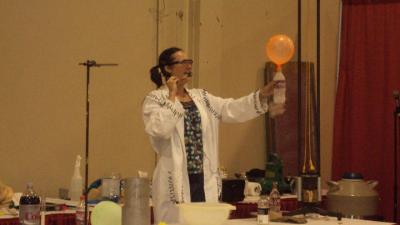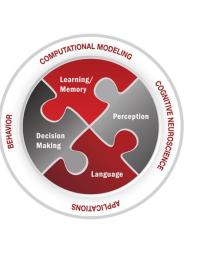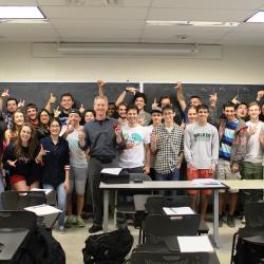Physics Education

A unique strength of the Ohio State physics department is that it is one of the few departments in the nation to have a group of faculty and graduate students dedicated to researching how students learn physics and how to improve their learning. Graduate students have a variety of ways to engage with the Physics Education Research group: performing ground-breaking education research in our PhD program, implementing innovative course design as a teaching assistant and participating in a graduate-level course on issues in physics education, which is recommended for all students who aspire to be college faculty members.
The Physics Education Research group has three main areas of focus: cognitive studies, educational assessment and the development of instructional materials and techniques.
Cognitive studies and educational assessment

What is the nature of students’ understanding of physics? How does this understanding evolve with time? Why is physics so hard? Does a physics course improve scientific reasoning skills? These are some of the questions investigated by the Physics Education Research group. Research includes: cognitive origins of scientific misconceptions, hierarchical structure of physics knowledge, and student learning in upper level and graduate courses. There is also research in computational models of student understanding and apply these to computer-based learning projects. The building and rigorous analysis of educational assessments, in order to more accurately measure and model student understanding, is also an active area of investigation.

Development of educational materials and techniques
Applying knowledge of how students learn to the design (and redesign) of instructional materials and techniques is a key focus in the Physics Education Research group. We develop course materials at the undergraduate and graduate level, including several projects on computer-based instruction. We also work with other groups in the department to improve learning of cutting edge topics such as materials science.
Faculty
PhD, University of Maryland, 1999
Cognitive and computational models of learning process
Biologically plausible neural network models of cognition
Model based education assessment theory and technology
Experimental and theoretical methods for modeling group learning
Meta-cognitive factors in learning
Education technology and curriculum for in-class polling and web instruction
PhD, University of Washington, 1994
Cognitive origins of student difficulties in physics
Learning and transfer of abstract and concrete representations
Hierarchical structure of physics knowledge
Application of PER principles to the class
